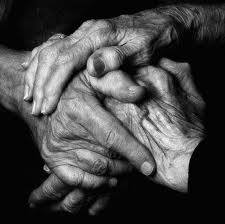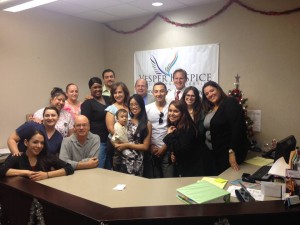VDS Feature: Considering Chaplaincy
 After graduating from VDS in 2011, I pursued a ministry in clinical chaplaincy, or what has also started to be known as spiritual counseling. I’m writing to those of you considering the field and even to those of you who aren’t. I am incredibly happy with the work that I do, even though I had once assumed it wasn’t for me.
After graduating from VDS in 2011, I pursued a ministry in clinical chaplaincy, or what has also started to be known as spiritual counseling. I’m writing to those of you considering the field and even to those of you who aren’t. I am incredibly happy with the work that I do, even though I had once assumed it wasn’t for me.
During my first year at the Divinity School I never considered chaplaincy. And maybe this isn’t something I should admit, but I really didn’t know what a chaplain did. I guess I assumed they prayed or something. Don’t worry, I’m only half kidding. I knew the ministry had a lot of depth to it, but to be a chaplain you need to be an ordained minister, something I’m not sure I can ever become.
It’s not that I don’t want to be ordained; it’s really the question of how?
I do not belong to a church. Truthfully, I hardly ever go to church. I did grow up in a church; however, the organization does not ordain women, even for field ministry. Also, I wouldn’t consider myself religious. When people ask what I am in terms of religious background I answer “spiritual but not religious,” and I feel very comfortable with the SBNR label/idea.
For work purposes, I tell people that I function as an interfaith chaplain or a spiritual counselor. Playing with this identity made CPE very difficult for me. I was lucky that I was even let into a program after verbalizing during my interview that I wasn’t sure how I’d get board certification since I wasn’t affiliated with a church. I completed my training, nonetheless. CPE was incredibly challenging, inspiring, and transformative. For those of you going through it now, a good self-care program is essential for perseverance! I practice yoga and meditation daily to recharge and reconnect.
After CPE I was worried. How was I going to get a job if I couldn’t get ordained? I kept questioning whether or not all of my training was a waste of time. Even though I had a passion and a calling for the field, the bottom line was that I am not an ordained minister. All I could do was apply for jobs and see what came up. At the end of 2012 I was offered my first job in hospice care. While working in the hospital during CPE I had naturally gravitated towards oncology, palliative care, and end-of-life, so I was very happy and excited to accept the job. I was also relieved to find that a lack of ordination was not going to be an impediment. In fact, I have found that being unaffiliated cultivates a certain amount of freedom and openness with my clients.
Something I’ve been learning is that offering spiritual care at the end of life is not usually focused on church. Clients who are interested in rituals and blessings often have a connection to a pastor of their own, and daily devotionals can be read on paper. Most of the people I see have a desire to explore what they imagine may happen when they begin to transition from the material world. Many struggle with issues of forgiveness and finally letting go of anger. Pragmatically, I’m finding that people generally benefit from having a space to process their spiritual self. This is why I will most often use “spiritual counselor” when introducing my role on the hospice team. I want my clients to know that I am inclusive and open to any space they are coming from and any space they would like to explore with the time they have left.
Every day I serve as witness to another soul, another idea of God, another kind of love. I feel grateful to be working in a ministry of compassion. End of life care is an absolutely beautiful ministry, and I feel I owe great thanks to Dr. Larry Churchill, with whom I had many conversations on the ministry of death and dying and who also encouraged me to try hospice chaplaincy. Becoming an ordained minister is a unique calling and is worthy of respect, but it is not necessary for spiritual care at end-of-life and neither is holding a solid position on the spiritual spectrum.
 I currently work for Vesper Hospice located in Pasadena, California, and I am very happy working with a team of incredible professionals. For those of you considering chaplaincy, or would like to talk about SBNR ministry contact me; I always appreciate the conversation.
I currently work for Vesper Hospice located in Pasadena, California, and I am very happy working with a team of incredible professionals. For those of you considering chaplaincy, or would like to talk about SBNR ministry contact me; I always appreciate the conversation.
Jill Schock, MTS’11
February 12th, 2014
Often, when caring for all of God’s children, our own identity valences need to be shed if we are going to truly connect with someone. You are expressing a type of vulnerability in hospice care that is probably difficult to attain if you are formed/institutionalized/ossified in one of the established churches. Keep up the good work, Jill!